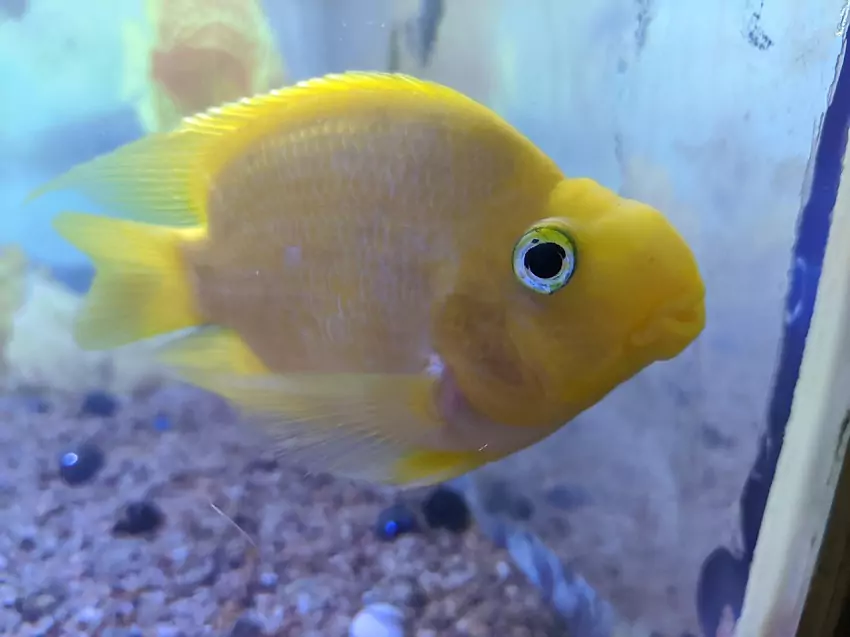As a seafood lover, I have always been curious about the different edible types of fish.
One such fish that has caught my attention is the Parrotfish. With its vibrant colors and unique appearance, it’s hard not to wonder if it’s safe to eat. So, can you eat Parrotfish?
Key Takeaways
- Parrotfish are edible and considered a delicacy in some cultures.
- Removing Parrotfish from coral reef ecosystems can significantly impact their health.
- It’s essential to know how to identify safe Parrotfish and prepare them properly to avoid food poisoning.
Can You Eat Parrot Fish?
The answer is yes, you can eat Parrotfish. Parrotfish are considered a delicacy in some cultures and are widely consumed in countries such as Japan, Taiwan, and the Philippines.
The flesh of Parrotfish is white and mild, and it can be served cooked or raw. However, before you decide to add it to your next meal, there are a few things you need to know.
Parrotfish play a vital role in coral reef ecosystems, and their removal can significantly impact the health of these ecosystems.
Additionally, some parrotfish species contain a toxin called ciguatera, which can cause food poisoning in humans. So, knowing how to identify safe Parrotfish and prepare them properly is essential.
Health Benefits of Parrot Fish
Parrot fish is a good source of protein, omega-3 fatty acids, vitamins, and minerals such as iron, zinc, iodine, magnesium, and potassium.
These nutrients are essential for maintaining a healthy body and immune system.
According to the American Oceans organization, parrot fish have a mild, sweet flavor and a firm texture.
It can be prepared in various ways, such as grilled, steamed, pan-fried, or baked. When cooking parrot fish, it is essential to remove the scales and season it with herbs and spices to enhance its natural flavor.
Are parrot fish poisonous to eat?
While parrot fish is safe to eat, it can also be toxic due to ciguatera toxins.
Certain algae produce these toxins and can accumulate in the flesh of parrot fish and other tropical fish such as grouper and barracuda. Symptoms of ciguatera poisoning include muscle pain, paralysis, and dyspnea.
It is essential to consume parrot fish from reputable sources and avoid consuming the liver, which can contain lethal toxicity.
How to Prepare Parrot Fish
As someone who loves to cook, I have found that parrot fish is a delicious and nutritious option for any meal. H
Here are some tips on preparing this fish for a tasty and healthy meal.
Seasoning and Cooking Methods
Parrot fish can be cooked in various ways, including grilling, frying, and baking. When it comes to seasoning, the possibilities are endless.
Some popular options include garlic, ginger, chili, or lemongrass. You can also add herbs like cilantro or basil to enhance the flavor.
- Grilling: If you are grilling the fish, clean the scales thoroughly and remove the head and tail. You can then season the fish with salt, pepper, herbs, and spices. Place the fish on the grill and cook for 5-7 minutes on each side until it is cooked.
- Frying: For frying, you can use a mixture of flour and your choice of herbs and spices to coat the fish. Heat some oil in a frying pan and cook the fish until it is golden brown on both sides.
- Baking: If you prefer baking, paste with chopped green onions, lemon, garlic, cilantro, onion, and olive oil. Add salt and pepper, and blend until smooth. Coat the fish with the paste and bake in the oven at 375 degrees Fahrenheit for about 20-25 minutes.
Parrot Fish and Coral Reef Ecosystems
As I write this, I can’t help but think about how vital parrot fish are to coral reef ecosystems. These colorful and tropical creatures are essential to the health and thriving of coral reefs.

In this section, I will discuss the importance of parrotfish in coral reef ecosystems, their relationship with coral polyps, sand beaches, seagrasses, food chains, predators, and more.
Importance of Parrot Fish in Coral Reefs
Parrot fish are instrumental in conserving corals as they feed on sea algae, making their fishing and consumption a concern. They play a crucial role in the coral reef ecosystem by keeping the reefs clean.
Parrot fish spend about 90% of their day eating algae off coral reefs. This almost constant eating performs the essential task of cleaning the reefs, which helps the corals stay healthy and thriving.
Parrot Fish and Coral Polyps
Parrot fish are known for their bird-like beaks, which are used to feed on coral polyps and algae.
They eat the algae that grow on dead coral and help keep the coral clean. They also play an essential role in the sand-making process by grinding up the coral they eat and expelling it as sand.
Parrot Fish and Sand Beaches
Parrot fish are responsible for creating much of the sand on tropical beaches. They grind up the coral they eat and expel it as sand, which then washes up on shore. With parrot fish, the sand on tropical beaches would be much more abundant.
Parrot Fish and Food Chain
Parrot fish are an essential part of the coral reef food chain. They are herbivores and eat algae, which in turn helps keep the coral clean and healthy.
They are also prey for many predators, including sharks and humans.
Parrot Fish and Predators
Parrot fish have many predators, including sharks, barracudas, and humans. Sharks are at the top of the food chain in the coral reef ecosystem, and they eat grouper, which eats herbivorous fish like gobies and parrot fish.
Parrot Fish and Seagrasses
Parrot fish are also crucial to seagrasses, an essential part of the coral reef ecosystem.
They eat the algae that grow on seagrasses, which helps keep them healthy. Seagrasses provide food and shelter for many species of fish, which in turn helps keep the coral reef ecosystem healthy.
Frequently Asked Questions
Here are the answers to the most frequently asked questions:
Yes, parrot fish is a healthy food that is high in protein and low in fat. It is also a good source of vitamins and minerals, including vitamin D, vitamin B12, and selenium. Parrot fish is also rich in omega-3 fatty acids, which are essential for heart health and brain function.
It is not recommended to eat parrot fish raw as it can carry harmful bacteria and parasites. Raw parrot fish can cause food poisoning and other health problems. It is important to cook parrot fish to the right temperature to ensure that it is safe to eat.





Leave a Reply
You must be logged in to post a comment.